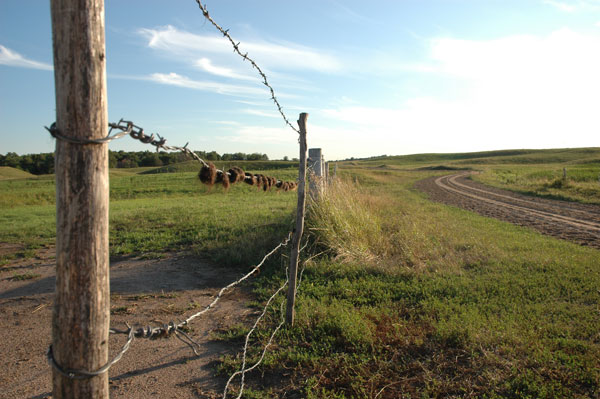McDonald’s & Walmart Demand Sustainable Beef – What Does That Really Mean?
McDonald’s and Walmart have put a timeline on the beef industry’s sustainability efforts.

Last week, when McDonald’s announced it will begin purchasing verifiable sustainable beef in 2016, many in the cattle business wondered exactly what McDonald’s meant by “sustainable beef.”
Here’s the catch—nobody knows. And that, says Tom McDonald, is a conundrum.
McDonald is vice president of environmental affairs with JBS Five Rivers Cattle Feeding and a member the committee overseeing the National Cattlemen’s Beef Association’s (NCBA) beef sustainability assessment project. Speaking at the Southwest Beef Symposium last week in Clayton, NM, McDonald told cattlemen that the beef sustainability clock is now ticking in earnest.
Historically, McDonald says, sustainability in the beef business meant that your income exceeded your operating expenses and you were able to stay around for another year. However, consumers change and the world in which cattlemen now must operate is different.
“You’ve got Americans who not only want to buy products that work, that do the job, but that align with their values,” he told cattlemen. “Today, I think you can safely say that sustainability represents the moral values of each person or organization representing the term. So that’s where our dilemma comes in; everybody has their own mental picture of what sustainability means when it addresses their moral values.”
Up until last week, there was a lot of conversation about beef sustainability, but little definite action. That has now changed. “Now we have a deadline. In 2016, McDonald’s is going to purchase verified sustainable beef. They don’t say how much and they don’t give themselves a timeline to have their entire beef purchases sustainable. But I bet you in 2016, we will have standards and they will have a way to verify them. So the clock starts.”
And McDonald’s isn’t the only major player to start the clock. Last September, Walmart announced it will have an expanded program with a consistent message and a standard of excellence that will touch at least 50% of the cattle industry by the close of 2016, McDonald says. This expanded program will include guidelines on land stewardship, water quality and reduced feed and manure emissions, he adds. And that’s not all. “They’re also starting a pilot program that includes environmental criteria. And 15% of their beef supply will be sourced under this criteria by 2023,” he says.
Subscribe now to Cow-Calf Weekly to get the latest industry research and information in your inbox every Friday!
Fortunately, says Ben Weinheimer, Texas Cattle Feeders Association vice president, the beef industry, through NCBA’s beef sustainability assessment project, has a head start on establishing a baseline and a level of improvement in an exhaustive list of beef sustainability efforts. Based on that assessment, the beef industry now defines its sustainability as three pillars—financial viability, environmental stewardship and social equity. Based on the beef industry’s initial assessment, he says the beef industry improved its sustainability efforts overall by 5% from 2005 to 2011.
So the beef industry has a good story to tell. Weinheimer and McDonald say that the beef industry has been at the table, telling cattlemen’s story and defending the beef industry in the many meetings leading up to last week’s announcement. That effort will now have to shift into road gear.
“So you have McDonald’s and Walmart setting goals that will have to have standards that will have to be met. And today, we don’t know what those standards are. So you can understand the level of activity that’s fixing to occur,” McDonald says.
You might also like:
Moderation And Choices, Not Hysteria, Will Fight Obesity
What’s All This Talk About Felfies?
65+ Photos That Celebrate Cowgirls & Cattlewomen
About the Author(s)
You May Also Like


.png?width=300&auto=webp&quality=80&disable=upscale)
